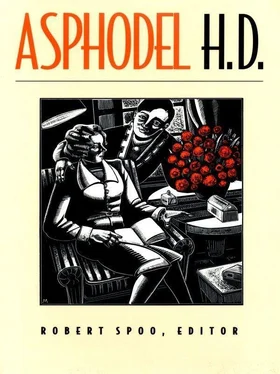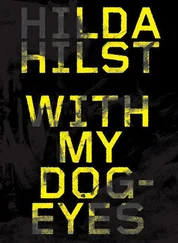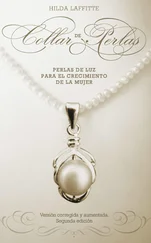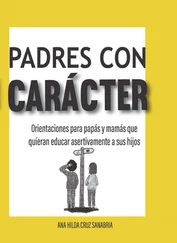Weave, that is your métier, Morgan le Fay, weave subtly, weave grape-green by grape-silver and let your voice weave songs, songs in the little hut that gets so blithely cold, cold with such clarity so that you are like a flower of green-grape flowering in a crystal globe, in an ice globe for the air that you breathe into your lungs makes you too part of the crystal, you are part of the air, part of the crystal, and the air in your lungs and the voice that rises to some impossible silver shrill note in this empty little hut is a voice of silver, you are nothing, a blur of nothing, only the air in your lungs and the beating of your lungs like wings and the high impossible note make you one with beauty, with reality though you are nothing, ugly dark blue mis-shapen gown, stooping to gather twigs, to light the fire, breathe in the fumes of the smoke and you are one with the forest. Gods, daemons. This is your character. Your voices, your lungs (breathing air) chain you to people, you have lungs like people, air is free to all. On the just and unjust. Air. Air is a deity. To-day he wears silver sandals, the frost of sandals is in his breath and when he kisses me I am taken with his winged heels to the top of Olympus and I stand viewing all Hellas. Hellas? Hellas? What of Hellas? O, Hellas was yesterday at Marion’s and that stark note of command, that demanding of me all that I have — what is the girl, she must be foreign, English people never care like this, don’t read everything, she picked my brains, how tired she left me. Morgan le Fay build your pile of branches, blow high your smoke. . breathe in your enchantments with the forest smoke, sing silver. . silver. . for you are doomed.
What is the matter with me? Why can’t I get away from people? I am in several pieces, it’s true, but I gave up the stark glory of the intellect, I chose finally this thing. O sister, my sister O fleet sweet swallow . I might not have had it. I chose it and I am taking the consequences of this choice which was the great choice, which was heaven. Unless you become as a little child, unless you become one with a little child, I have it and I am it and I don’t see why I can’t be let alone anyhow. Cornwall was some ledge of enchantment and Morgan le Fay fell under a druid altar and a god watching the sunrise, waiting for the sun-set so discovered her and sent his bird, the bird that came in, the sound of a child’s voice crying yet and I said yes, soit, so be it, bowed my head like Magdalene, like Mary and said yes and I know that God makes me one, one with trees, with the sea, this is my terrain, even as a baby I used to crawl away under the bushes, the great white rose bush was like a forest to me then and I made nests of twigs, pretended to be a bird, a great swan with my nest and the kittens were the cygnets. Nests and birds and the kittens whose fur was like down and the colour was right, brown cygnets, rather ugly for beautiful swan, that was me, great swan of four years under a white rose bush. Eugenia (I called her mama then) loved roses. Pull off the thorns, it is more polite, strip them carefully if you offer them to anybody, for it shows you have been brought up nicely and everything you do wrong reacts on your parents. Who had brought up Darrington? Or Cyril Vane? Thorns. Für bei den Rosen gleich die Dornen stehn. Toute épine a sa rose. It works both ways. But it was all right. I ran away. Vane said he would “look after me” but I ran away. I couldn’t sit night after night and see him not understanding, well bred annunciation angel in Chelsea, in Saint John’s Wood. We would have had a pretty house, everything I wanted and the romantic scandal but all patched up, poetical, and his family so wealthy. . I couldn’t have stood it. Except ye become as little children. O he might have tried to understand, just to have said, “good for you, splendid, you are risking your life again like any soldier” but he wasn’t a soldier and Darrington was only an imitation one though she didn’t hold that against him and he couldn’t be expected to understand. Für bei den Rosen gleich die Dornen stehn and after all there had been that beauty of pre-war Italy, pre-war Easter in Sorrento and the oranges that year had an unearthly fragrance. Freesias bordered the garden paths and she found violets to weave a crown. . wound into her hair so funny at night and Darrington called her Aphrogenia. Aphrogenia. . a blossom of flowering seas. . and a goddess and mother of Rome . Rome. The campagna. The Pincian Gardens, it was about this time, early winter that we went there. Tea in a little underground passage, very chic. Italian officers (pre-war) in blue cloaks. O sister my sister, O singing swallow . . all the same I don’t see why they can’t let me alone. I am Morgan le Fay (am I?) and I belong to trees, woods and I have every right to my security in this little hut with its delicious cold and its delicious isolation and I don’t want to be disturbed, worried by the pedantic wretched child. I can’t think of her as grown up. “Dear Mrs. Darrington” (she would call me that) “it meant so much to me to see you yesterday. I’ll send the car over to fetch you. It will be too far for you to walk,” (O bother her, bother her, bother her) “there’s no time for an answer. The car will call anyway. I’d be terribly, terribly disappointed. You can’t understand. I never met anyone before who knew the Greek Anthology” (bother her, damn her, I don’t) “it meant everything to talk that day of Mallarmé” (Mallarmé, had they? Tuerons la lune) “I beg of you. I am so very lonely.”
Let her be lonely, bother her, there is no such thing as loneliness with a great grey fur rug over your knees. No, there is no such thing as loneliness curled into one corner of a mammoth car, there were no cars like this, how did this come here, great car like a conqueror’s chariot and the wind through the open hood and the world outside made perfect, perfected, and made proportionate to perfection. What do I mean? Why do the trees look so different for they do. It must be just the sheer human perspective but this is luxury and we have all forgotten luxury, we have lived in ditches, for years and years and our lives were light things, pinned lightly to our coats, our brown, fawn brown and horizon blue jackets, tunics, they called them, flowers to be worn lightly, to be tossed away. I have lived so long with trees, with trees that I don’t know what to think, feel like some captured hamadryad under this pelt, this great pelt, how primitive the wealthy are, how primitive this is, rolling on and on and on and the roads are all narrower than they ever were when I walked them, scrambling over the ditches, catching a cluster of red berries to stand in the corner of the clean little hut. All the roads are different. I have no time to remember that that corner held the great orange shaft of late autumn lily that had escaped from the nearby cottage and this is the Tinkers Arms where I stopped that rainy afternoon for tea. Solitude, splendour with a little book in my pocket, tea steaming, “yes, I am here for a few months, my husband is in France. I know Miss Drake.” The country, the country, every inch of it was measurable, English country, being kind to her, why were they kind to her? They were kind in Cornwall, here they were kind to her. Morgan le Fay, great autumn lily wandered from a garden, what are you doing, lover of luxury in these woods, orange lily, glowing with fire, kissed of the fire, in some wood, some beech forest? What are you doing, Morgan le Fay? Drag the pelt over you. It’s getting late. Soon real winter. Prolonged autumn with dark evenings. Sense of mystery in England. England is all a mirage, love it — love it as you love a dream, a place for ghosts, for phantoms, for throw-backs, Morgan le Fay. They were always kind to you in England, I don’t know why, for people say it is a hateful country, why were they so kind? Morgan le Fay, smile Morganlefayishly. . “yes, I loved the drive over. No, not cold.” House full of odd things, chippendale, old hall, was she living here? Don’t ask. What is the weird child doing here? Why didn’t she say something, say “my father paid a billion billion pounds — for that car,” why wasn’t she communicative, say, “I bought this dress at—” but where had she bought the dress? Hermione couldn’t quite “place” the dress. Where had she found the dress, it was too old for her, her shoes weren’t right. Who had dressed her, head pulled forward by the huge coils of braided hair, tea brought in, she was clumsy with the tea-cups. “O let me help you,” but what a thing to say, never met her but once, asking to pour her tea, that hieratic ceremony. The child held the huge tea-pot in small unbelievably fine little hands, hands too small, too small for anything, head too heavy and hands too delicate, too small. Head and hands don’t match, what is the matter with her? Her head is too big, her hands are too small, her eyes are far, far too blue. . “do you — do you — paint?” “ O paint— ” The girl put down the heavy tea-pot, turned eyes that were far too blue on eyes that were grey and green and somehow coming back (Hermione felt this) to some indoor perspective. “Paint — what made you ask it?” “Your hands — I don’t know — something in the way your eyes stare—” O lovely room, last stray bit of sun, like a gold gauze of fine web falling, filtered through trees outside between drawn beautiful curtains. Little waif, are you a le Fay too? What is this family that seeks its own, brothers and sisters, lost people? Vane had been so dear in Cornwall, was it her fault, her own lack of patience that had lost him? Sister, brother. What were these hectic relationships, this Louise-Darrington alliance, for instance, what did it know, what could it know of these things, these inevitable kinships of the spirit?
Читать дальше












